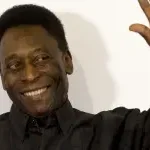It was near the end of winter’s long tail—that time after the thaw but before blossom and bud, when it’s tough to believe that the buoyant lift of spring will ever come—when I began to perceive that something was different. Began noticing how, after two especially exhausting years, we seemed to be holding our hurt out toward one another, brimming with tenderness and want. Everyone kept talking about the schisms dividing us, but what I felt, instead, was a desperate desire to connect after so much isolation. People dropping their masks and their defenses.
It’s a feeling that has hung about all year as we—as a culture, as a world—have moved from one demoralizing setback to another: The omicron variant of early 2022 knocking many back into their hidey-holes, and then Russia’s invasion of Ukraine. In late May, the agonizing news from Uvalde, and the painful fear of bringing children to school in the following days. On June 23, the long-feared overturning of Roe v. Wade in the US Supreme Court. The crushing decision was handed down on my twins’ last day of kindergarten; they moved up, the country lurched backward.
This past year, the curveballs came faster than I could reset my stance, and, as a parent, I found myself grasping. My children were hearing the awful news, and I didn’t know what to say. I didn’t want to offer false promises of assurance or safety, but knew I couldn’t leave them alone in their angst and ache. I had to find a way to meet them, there, in the dark, theirs and mine. And so I turned, as I always do, to books.
With the topic of death in the air—in Russia and Ukraine, in an elementary school in Texas, among women denied access to safe, legal abortions—my children had big questions about safety, choice, and lives cut short.
At just the right moment, I discovered Kate DeCamillo’s beloved Because of Winn Dixie (Candlewick, 2000). Through the words of the sage Miss Franny, DeCamillo offers a better ethical maxim than…







